Gossip and care in the Indo American community in Queens
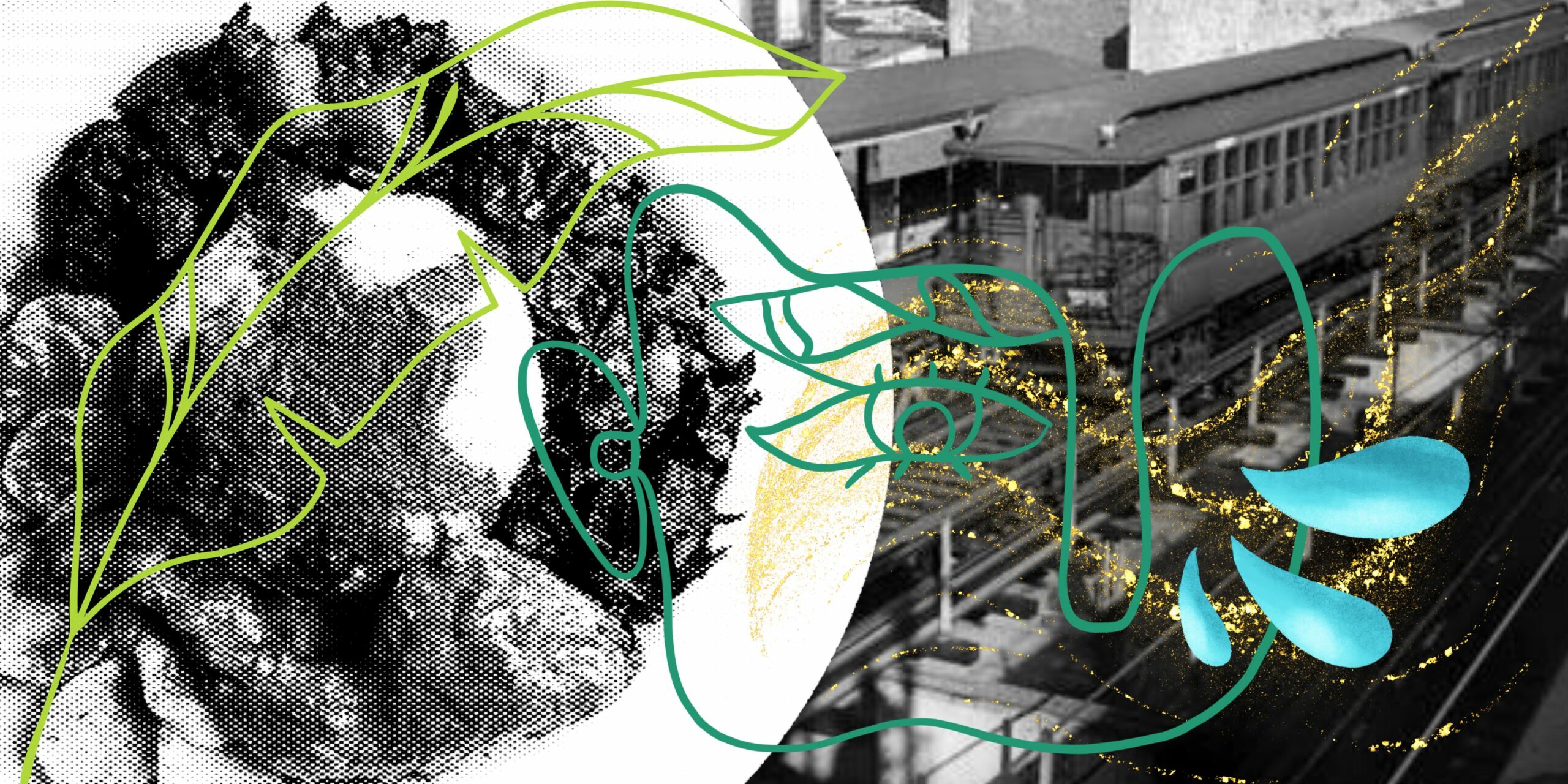
November 27, 2023
Awang Kitchen is an Indonesian restaurant along Queens Boulevard in Elmhurst, a half mile away from Queens Center Mall. This rumah makan, named after its founder and chef, Siliwanga, is known for large group get-togethers and big portions that accommodate every table size. With karaoke every week and constant chatter from seemingly stone-faced men and women, it’s always guaranteed to be a good time.
It’s also where my friends, my parents, and my parents’ friends gather to talk. It’s where you’ll hear bits and pieces of information that you have no business knowing.
During an Awang outing last year, Nina—a photographer and my childhood friend—scanned the restaurant. Hunched over our shared plate of nasi padang, she whispered: “Ari came to Awang with his [non-Indonesian] girlfriend, and she had visible clavicle piercings. He’s not the type of guy to tell his girl what to wear, but he begged her to wear a cardigan before coming in, and she said no. Of course Uncle Ahmad happened to be there, and he gave them both a freaking lecture on body piercings and holiness and shit.”
This was not something Nina and I should have known. But Nina was the first to tell me this news. She found out through her mother, who heard about it from Ari’s mother over dinner at, you guessed it, Awang Kitchen.
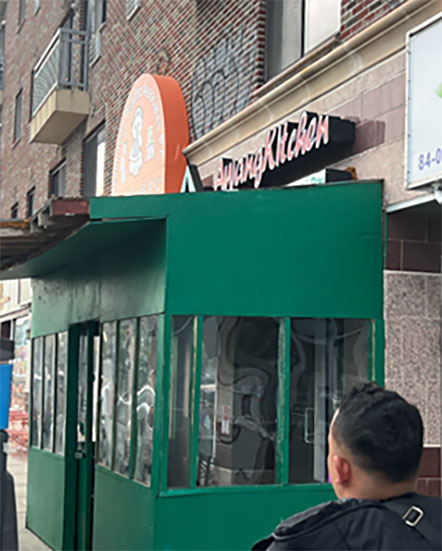
Over steaming plates and Bintang beers, the line between confidante and audience blurs. Whatever morsel of conversation (read: gossip or “community news” in nicer terms) you share can serve as a token of friendship or a form of entertainment. Whether those at the table judge your experiences is up to them and —no matter how close you are—what you’ve done for them and what they’ve done for you.
It’s no wonder that even in the company of my mother and my aunt, I still find myself looking over my shoulder whenever I hear some noise that sounds eerily similar to my name: Den, Den-Ah, Dee-nah, Deen.
But the rumors, gossip, and judgment don’t start and end in Awang Kitchen. It’s part of Indo American life beyond the dining table.
□ □ □ □ □
I was born in Elmhurst, Queens. I grew up in a one-bedroom apartment with my parents and brother across the street from Queens Center Mall. From 1997 to 2006, my parents took in any Indonesian who had recently moved to Queens and needed a place to stay until they had everything settled. Sometimes, it took three months. Other times, three years. Regardless, I would often wake up to a new person sleeping in our living room that I later called uncle or auntie.
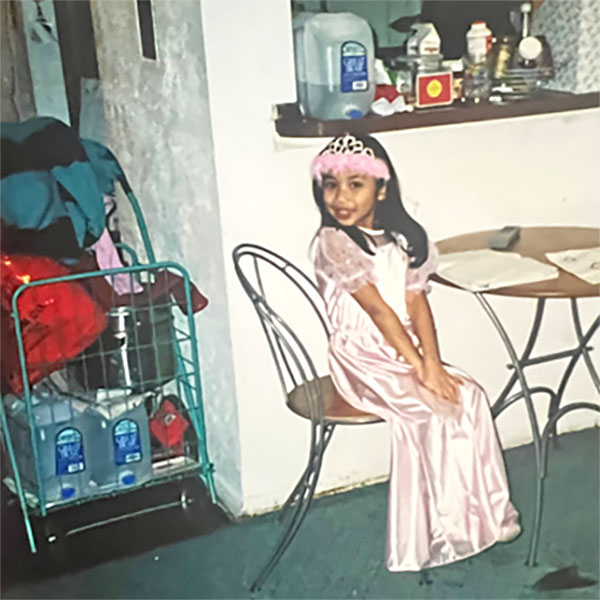
Queens County is home to the fourth largest population of Indonesian immigrants in the United States. When I was growing up, I felt like most of the population knew my parents, and definitely recognized me—the kid who was their temporary roommate for a brief, or not so brief, moment in their lives. So all of my early memories of Elmhurst are of me ducking behind a shopping rack, hiding in an alley, or walking ahead of a friend that wasn’t really a friend to escape their knowing glances and widened eyes.
Despite the Indonesian aunties and uncles that came and went in my home throughout my childhood, I was usually the only Indonesian kid in my school, let alone in my class. No one knew exactly where I was from:
“You sure you don’t mean India, hun?”
“If you’re Muslim, how come you don’t look Muslim?”
But there was always Saturday school with all of my Indonesian friends. Every weekend, we would gather at Masjid Al-Hikmah, where older teens in the community would teach us lessons. It was a place that felt like a respite from school and from the new auntie or uncle at home.
My childhood weekends were filled with brightly colored binders holding every surat and its translation side by side. All of us kids had Iqro, a little black book with a picture of the author faded in the back, which taught us how to read and write Arabic. Because most of the teachers were teenagers, we asked all of the questions we were too nervous to ask our parents.
“Can I really find every answer in the Qur’an?”
“Is Allah under my bed?”
After morning classes, we would beg our parents to let us stay until Isha, so we could play manhunt in the parking lot or pretend we were Bleach characters in the basement.
For Indonesians, religious communities guarantee certain things: a set of friends, a few mentors, an understanding of the region you came from, financial help if necessary, even a cemetery plot. So everyone has to appear good to everyone else. And everyone including your kids. If your kids aren’t doing well, you probably aren’t as well.
While Saturday school was once a place of solace, from middle school onwards, it slowly transformed into a rat race. Whose kid was on track to become smart, successful, and married before twenty-five? Who could show that being here—amid the smoke, the grit, the constant risk of eviction—was worth it? There were small indicators of who was and wasn’t well on their way: Who got into a specialized high school? Who showed off their non-Muslim boyfriend/girlfriend on Facebook and Instagram? And if you weren’t smart, who was at least the tallest or prettiest enough to potentially marry rich?
“Everyone takes what you do into account,” says Fee, a childhood friend who I’ve known through PS 13 elementary school in Elmhurst, Masjid Al-Hikmah, post-Eid parties, and well beyond. “Every little thing matters. Your identity and how you’re perceived by those people like your parents or whatever, it’s just changed forever.”
□ □ □ □ □
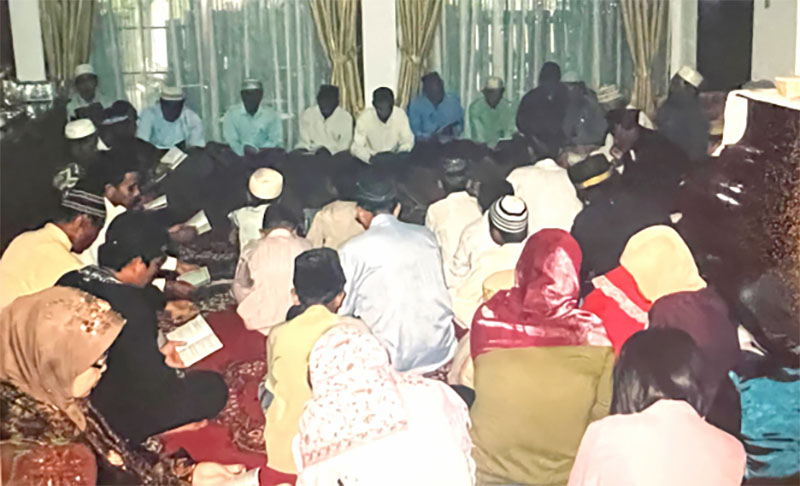
After I got accepted into a specialized high school in Brooklyn, I had guaranteed my spot on the path towards success. It was Brooklyn Latin not Brooklyn Tech, but I still got in through the admission test, SHSAT.) And day to day, I was finally physically away from everyone else who stayed in Queens for high school. I no longer had to worry about running into a childhood friend who might blurt out the time I farted in the masjid when I was eight in front of my other friends, or have an auntie see me wear tight skinny jeans and tell everyone my mom was a neglectful parent for letting me wear whatever I wanted. I no longer had to live under the shadows of judgmental stares.
Instead, I thought I would become more than everyone else around me, not because I was inherently better, but because I was one of the few who could introduce myself to a group of people who had not known me since I was a child. I could be accepted based on what I chose to let others know about me.
I continued to find ways to break free from the Indo community, with its expectations and gossip. In my senior year of high school, I saw my childhood friend Kezia on the R train in Elmhurst. I was with my boyfriend at the time. Kezia and I locked eyes, and in any other situation, I would have said a small hello and introduced my boyfriend as my friend. Instead, I pretended I didn’t notice her, and walked past her holding my then boyfriend’s hand. Kezia had done no wrong to me, but it was a small act of defiance, a way of showing that even in Elmhurst, I wasn’t afraid to do what I wanted, regardless of whether or not she told her mom, who would tell her friends, who in turn would tell my mom.
Later, I realized those acts of teenage defiance were cowardly. More importantly, I realized how much the community means to me. Years later, when some old Elmhurst friends and I gathered at the Masjid parking lot after Eid prayer, someone mentioned how I didn’t talk to Kezia that day. I lied and said my boyfriend and I were about to break up that day, and I was just nervous about it.
I spent my teenage years trying to separate myself from those who knew me best and from whispers spoken at Awang Kitchen. But throughout those high school years, my brother still remained close with our childhood friends. From him, I learned tidbits about everyone else. They also snuck around their boyfriends, smoked weed, were self-conscious and just as complicated as me, but I was too caught up in my own fear and perceptions that I didn’t let myself into the community I so heavily criticized.
“We’re more like a family than we are a community,” says Layla Djapari, another childhood friend, graphic designer, and the first to get married in our age group. “You care about what they think. You want to do right by them. Even when you’re really frustrated with them, or haven’t talked to them in years, you’ll always make sure they’re good.”
When I talk with Fee, Layla, and the other girls I grew up with about our parents, I hold back on my feelings towards my parents because I don’t want a daughter in the Indo community to tell her mother I’m ungrateful. I avoid food bazaars that include certain families because their parents hate mine. I hold back on what the people I interviewed for this piece told me because during a funeral, their mothers gently reminded my mother to not have me write anything that would hurt their reputation.
In time, I realized that gossip, as much as it holds weight, is still just gossip. A reason for all of us to squeal and laugh among one another. A way to learn about tradition. A filler over dinner. A pathway for us to feel just a little bit closer and know we aren’t alone in this echo chamber of a community.
We all keep up with each other through little bits and pieces of information ferried from a relative to a friend: Who went to school in what state. Who’s married to whom. Who’s in the arts now. Who got arrested. Who died.
We know each other best and know how to be there for each other when we least expect it and most need it. I think about how through an Instagram DM, Fee gave me advice on loving my body hair even though we haven’t talked in years. How Rara, a girl four years older than me who sat through my covers of the Sonic theme when I was seven, taught me how to properly tweeze my eyebrows (I still use the same routine). I think about how the person my father had a feud with in 2014 was one of the first to help us navigate the passing of my uncle in November 2022. How when my uncle passed away, my bouts of sobbing were interrupted by the childhood friends I had run away from now sending their condolences.
Dena, I’m so sorry for your loss. I remember all the times your uncle would lecture us when we broke something in your basement.
Please let me know if you need anything. If you want, I can talk to an uncle about funeral costs.
In all of these moments, we show up and show out for one another. Because who else would understand each other besides us?
□ □ □ □ □
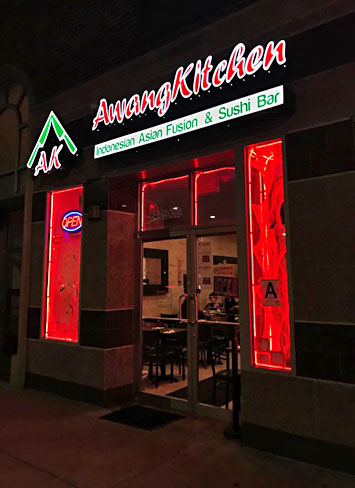
In November of 2019, I went to Awang Kitchen with my mom, aunt, and Mandy—a friend of a friend. As we talked, a server brought us sizzling fried fish garnished with ribbons of shredded scallion, followed by watercress sauteed in soy sauce, and four small bowls of rice.
In the corner of my eye, a TV screen flashed the lyrics of a muted song that I didn’t know. Families laughed at nearby tables, but only my table had fallen awkwardly quiet. After a few minutes of idling on our phones, Mandy asked if I had ever considered living in Indonesia.
“But she has all her family and friends in Queens,” my mom said.
Mandy furrowed her brow. “But you have family over there, right? You can make friends over there. You can definitely expand your lifestyle outside of just New York. America has always proclaimed itself as one of the greatest countries on earth when that is so far from the truth. There’s no healthcare. The economic disparity is horrible. You already have roots in Indonesia,” she said.
She wasn’t wrong. Mandy told us how she’s lucky she got out of the U.S. before Trump’s presidency, how she had to call herself German instead of American in Shanghai so people don’t put her in any proximity to Trump.
But living in Queens bonds Indo Americans for life. Even when we don’t want it or try to distance ourselves, we will never actually turn away from one another. Because our care for each other is not based on our family’s accomplishments or our self-determined proximity to holiness. Our care is tied to the fact that we’ve known each other through it all. No one gets me like the girls and guys who giggled with me on Saturday mornings back when I had no front teeth.
As plates and silverware clink against the table, I quickly said: “There’s nothing there for me. Not like here.”
